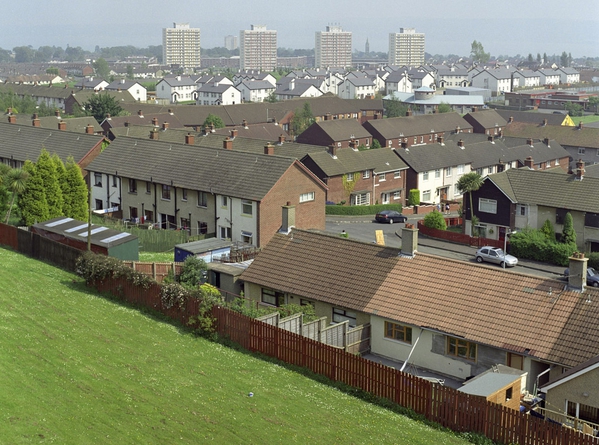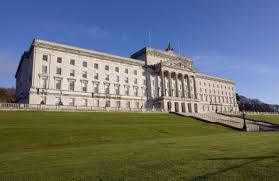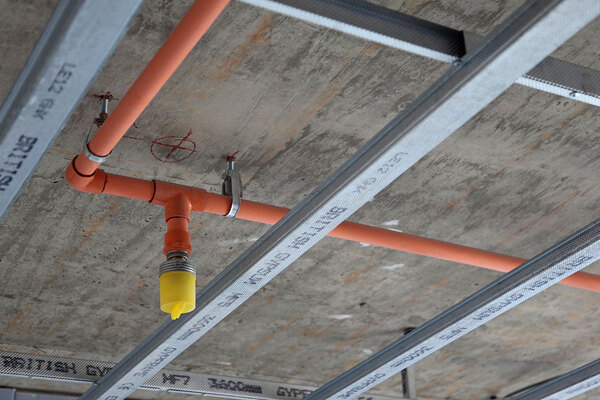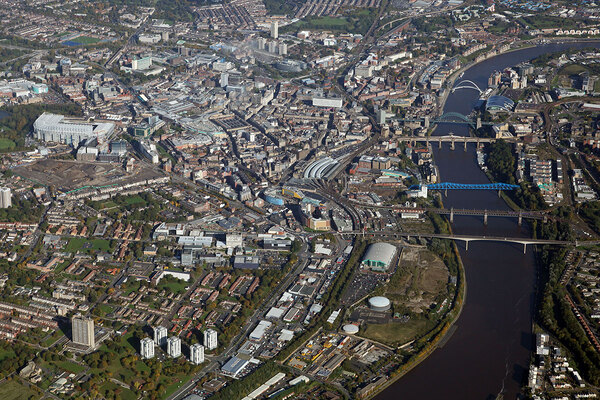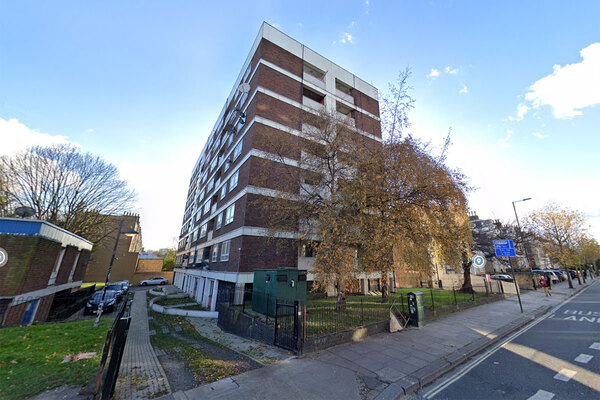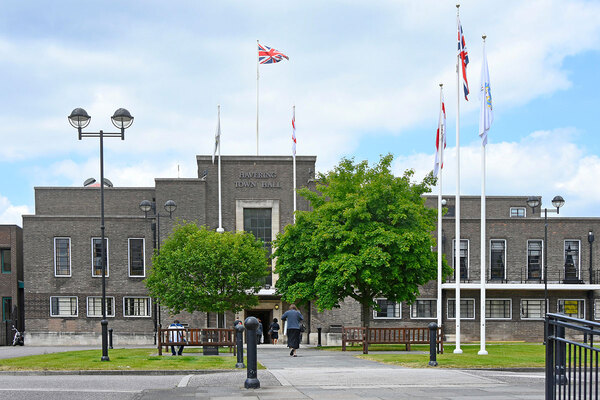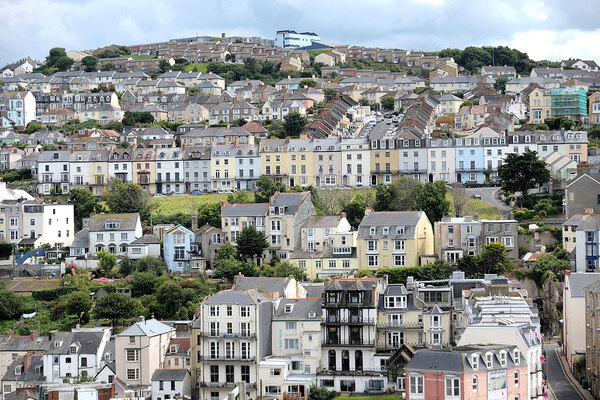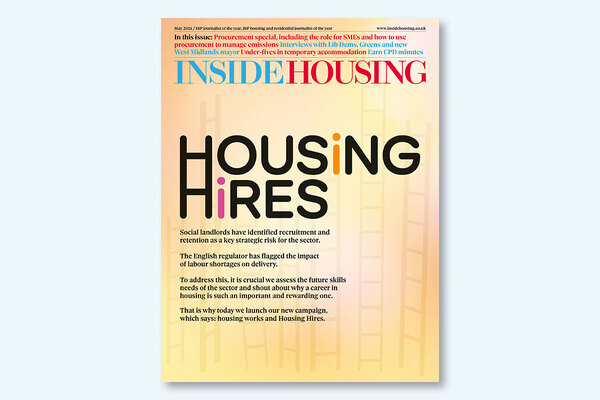You are viewing 1 of your 1 free articles
Decision time
What to do with the Northern Ireland Housing Executive will be the biggest task for the communities minister after this year’s elections, says Cameron Watt
Spring has arrived in Belfast, and the political parties are taking advantage to fix election posters to street furniture ahead of the Assembly elections on 5 May. With five parties of government and numerous smaller parties, that’s a lot of posters on a lot of lampposts.

Northern Ireland Housing Executive building on Adelaide Street in Belfast
During the Troubles, political power was hotly contested. “Vote early and vote often” was the mantra. However, since the peace process, political apathy has taken hold. A weary electorate has grown tired of a political class constantly bickering on tribal issues rather than delivering tangible improvements to people’s lives.
Perhaps uniquely for a democracy, the outcome of the Stormont elections is known before a single vote is cast. The Good Friday Agreement ushered in permanent coalition with guaranteed power-sharing between orange and green parties. The election merely determines each party’s number of MLAs and number of seats in the NI Executive, our devolved government.
Since 2011, housing has been the responsibility of the Democratic Unionist Party (DUP), now led by first minister Arlene Foster. However, housing is about to be subsumed in to a new mega ‘Department for Communities’ that will also be responsible for social security, employment and training, arts and leisure. There is much speculation that when ministries are divvied up, Sinn Féin may opt for the Communities brief. This outcome is far from certain, but what might it mean for housing?
The biggest item on their to-do list would be sorting out the future of the Northern Ireland Housing Executive (NIHE). At 88,000 homes, the NIHE is one of the UK’s largest landlords, as well as being the strategic housing authority in our region.
The NIHE’s predicament is well rehearsed: in spite of its great historic achievements, and widespread ongoing support, it faces major challenges. For reasons of political expediency, rents have been suppressed at sub-economic levels, leading to an inevitable deterioration of NIHE homes.
“If our sector were to be reclassified, any form of stock transfer of NIHE homes may be ruled out for the time being if it can no longer deliver the expected freedoms and private borrowing powers.”
Savills’ recent survey found the total investment requirement over 30 years to get the stock to the modern ‘commonly adopted standard’ is £6.7bn, including a major works investment of nearly £50k per home. Even significant increases in rents are unlikely to fill this investment gap.
So can private finance provide the solution? In its manifesto, the DUP advocates the “re-birth” of the NIHE, with it remaining as the strategic housing body, alongside “the transfer of its stock to fully utilise assets to make social housing more self-financing”.
This appears to be advocating the well-established GB stock transfer model. However, at present it appears highly unlikely Sinn Féin will agree to this. Its consent is required for any major NIHE reform, regardless of who the communities minister is.
Sinn Féin is committed to public ownership of NIHE homes, but it wants NIHE to have freedom to use its borrowing powers not just to invest in the existing stock, but also to re-commence building new homes, a role it had to relinquish in 1996.
However, there are major potential obstacles to securing the required private investment for both new and existing social homes.
The first is welfare reform. At significant cost to the Northern Ireland block grant, the NIHE has agreed to fully mitigate the bedroom tax until 2020.
It is unlikely it will be able to afford to do the same for the forthcoming Local Housing Allowance (LHA) cap for housing benefit for social rents.
Especially outside Belfast and Derry, the LHA cap will significantly limit social rents, potentially curtailing the NIHE’s ability to raise rents to a realistic level and housing associations’ ability to build homes in these areas.
If our sector were to be reclassified, any form of stock transfer of NIHE homes may be ruled out for the time being if it can no longer deliver the expected freedoms and private borrowing powers. So both for investing in the existing NIHE stock and sustaining new supply, the cumulative impact of the LHA cap and sector classification could be very damaging.
Clearly the new communities minister will have their work cut out.
Although the Northern Ireland Federation of Housing Associations’ view is that existing housing associations can be part of the solution to the NIHE’s challenges, our primary hope is that decisive action is taken quickly by the new NIHE to allow the required investment in tenants’ homes.
In the meantime, our new minister has to also ensure that local housing associations retain our independent, non-public status, so that we can continue to provide great homes for existing tenants and new supply for many of the 22,000 households in acute housing need.
Cameron Watt, chief executive, Northern Ireland Federation of Housing Associations (NIFHA)


